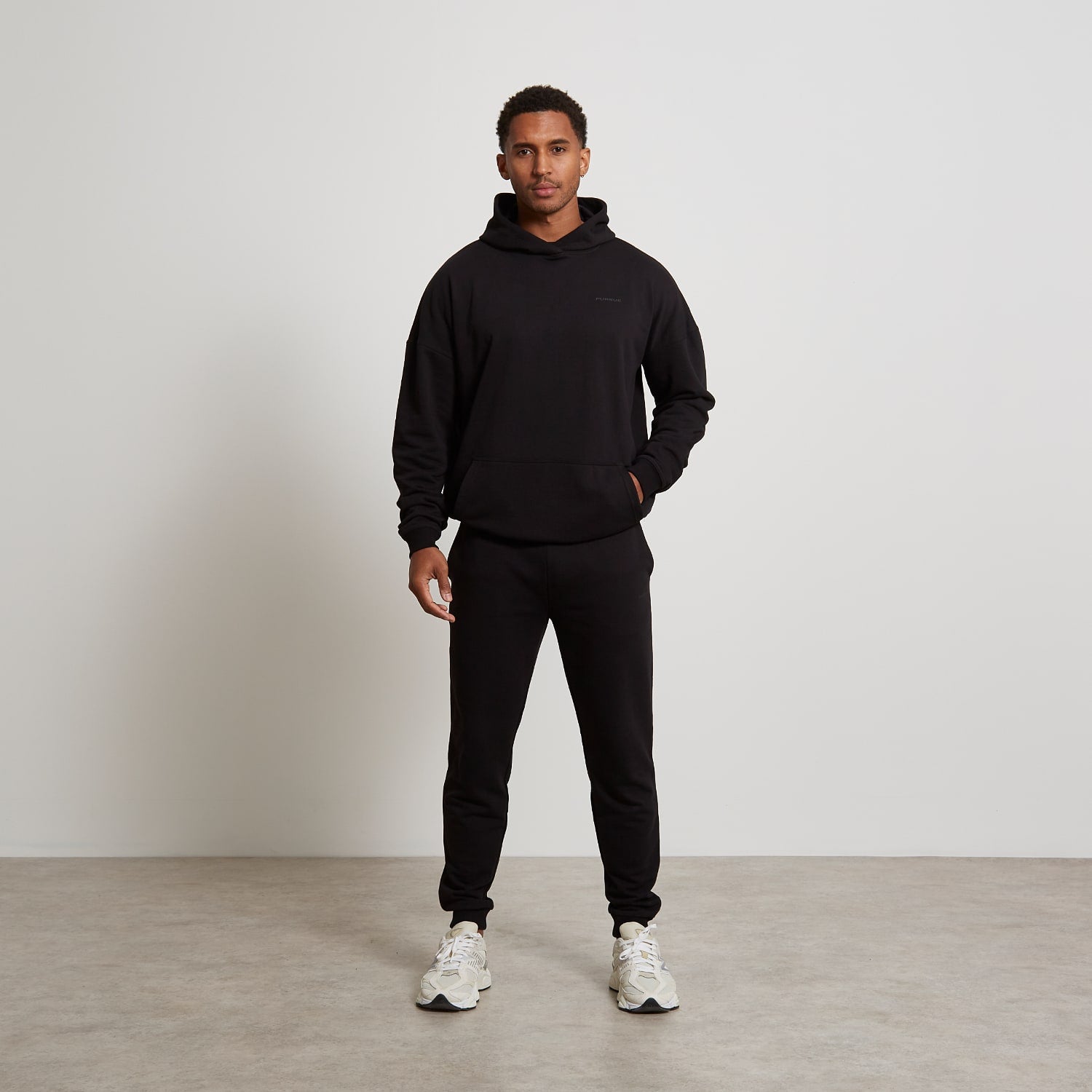The answer isn't one-size-fits-all, but understanding the factors that influence optimal workout duration can help you maximize your fitness results. Let's dive into the details of timing your gym sessions for peak performance and efficiency.
The Goldilocks Zone of Workout Duration
When it comes to workout length, there's a sweet spot that balances effectiveness and sustainability. Most fitness experts agree that the ideal workout length falls between 45 to 60 minutes for the average person. This duration allows enough time for a proper warm-up, a solid workout, and a cool-down period.
However, the "right" length can vary based on several factors:
1. Your Fitness Goals
Different objectives require different time investments:
- Strength training: If your goal is to build muscle and strength, sessions focusing on weightlifting might last 45-75 minutes. This allows for multiple sets of compound exercises with adequate rest periods between sets. Our men's training collection is perfect for these longer strength sessions.
- Cardiovascular health: For improved heart health and endurance, 30-60 minutes of cardio can be sufficient. This could involve steady-state cardio or interval training, depending on your specific goals.
- Weight loss: Combining cardio and strength training might extend your session to 60-90 minutes. This approach helps burn calories during the session and boosts metabolism post-workout.
- Flexibility and mobility: If you're focusing on yoga or stretching, sessions can range from 20 minutes for a quick routine to 90 minutes for a more intensive practice. Our women's leggings are designed to provide comfort and flexibility for these types of workouts.
2. Your Fitness Level
Beginners might start with shorter sessions of 30-45 minutes to build stamina and prevent burnout. As your fitness improves, you can gradually increase the duration. Advanced athletes might spend 90 minutes or more in high-intensity training sessions.
3. Your Schedule
Consistency trumps duration. It's better to have regular 30-minute workouts than sporadic 2-hour gym marathons. If you're short on time, consider high-intensity interval training (HIIT) which can deliver results in as little as 20-30 minutes.
The Science Behind Workout Duration
Understanding the physiological changes that occur during exercise can help explain why moderate duration workouts are often most effective:
Hormonal Changes
- Testosterone and Growth Hormone: These anabolic hormones, crucial for muscle growth and repair, peak during the first 45-60 minutes of intense exercise.
- Cortisol: This stress hormone begins to rise after about an hour of intense exercise, potentially leading to muscle breakdown if workouts extend too long.
Energy Systems
- ATP-PC System: This provides energy for short, intense bursts of activity (like heavy lifts) and is depleted within seconds but quickly replenished.
- Glycolytic System: This fuels moderate-intensity activities and can sustain energy production for up to about 90 minutes.
- Oxidative System: This kicks in for longer-duration, lower-intensity activities.
The Risks of Overdoing It
While dedication is admirable, spending too long at the gym can be counterproductive:
- Diminishing returns: After about 60 minutes, your body's energy stores deplete, and performance declines.
- Increased injury risk: Fatigue can lead to poor form and potential injuries.
- Burnout: Excessively long workouts can lead to mental fatigue and decreased motivation over time.
- Overtraining syndrome: Consistently pushing too hard for too long can lead to persistent fatigue, decreased performance, and even health issues.
Structuring Your Workout for Optimal Duration
To make the most of your gym time, consider this structure:
- Warm-up (5-10 minutes): Start with light cardio and dynamic stretches. Our hoodies and jackets are perfect for keeping your muscles warm during this phase.
- Main workout (30-45 minutes): This is where you focus on your primary exercises, whether it's strength training, cardio, or a mix. For strength training, prioritize compound movements early in your workout when you're fresh.
- Cool-down and stretching (5-10 minutes): Gradually lower your heart rate and stretch to improve flexibility and reduce soreness.
- Optional finisher (5-10 minutes): If you have extra time and energy, add a short, high-intensity finisher to boost calorie burn and improve conditioning.
Tips for Efficient Workouts
- Plan ahead: Know your workout before you arrive. This reduces time spent deciding what to do next.
- Minimize rest periods: Keep rest times between sets to 30-90 seconds for most workouts. Use a timer on your phone or watch to stay on track.
- Use supersets: Pair exercises that target different muscle groups to save time and increase workout intensity.
- Stay hydrated: Bring a water bottle to avoid trips to the water fountain. Proper hydration is crucial for maintaining energy levels throughout your workout.
- Dress appropriately: Wear comfortable, performance-oriented clothing to maximize your workout efficiency. Our fitted t-shirts and shorts are designed with your comfort and performance in mind.
Listening to Your Body
While guidelines are helpful, it's crucial to listen to your body:
- If you're consistently fatigued or sore, your workouts might be too long or intense.
- On high-energy days, you might extend your workout slightly if it feels right.
- Always prioritize proper form over workout duration.
Bottom Line
The ideal workout duration varies from person to person and depends on numerous factors. For most people, sessions lasting 45-60 minutes provide an effective balance of benefits without risking overtraining. However, the quality of your workout always trumps quantity – a focused 30-minute session can be more beneficial than an unfocused 90-minute one.
Remember to start where you are, gradually increase duration as your fitness improves, and always listen to your body. With the right approach and quality gear, you can optimize your workout duration for maximum results.
Ultimately, the best workout duration is one that you can consistently maintain while progressing towards your fitness goals. Whether you're squeezing in a quick 20-minute HIIT session or enjoying a leisurely 90-minute workout, the key is regular, purposeful exercise tailored to your individual needs and preferences.


